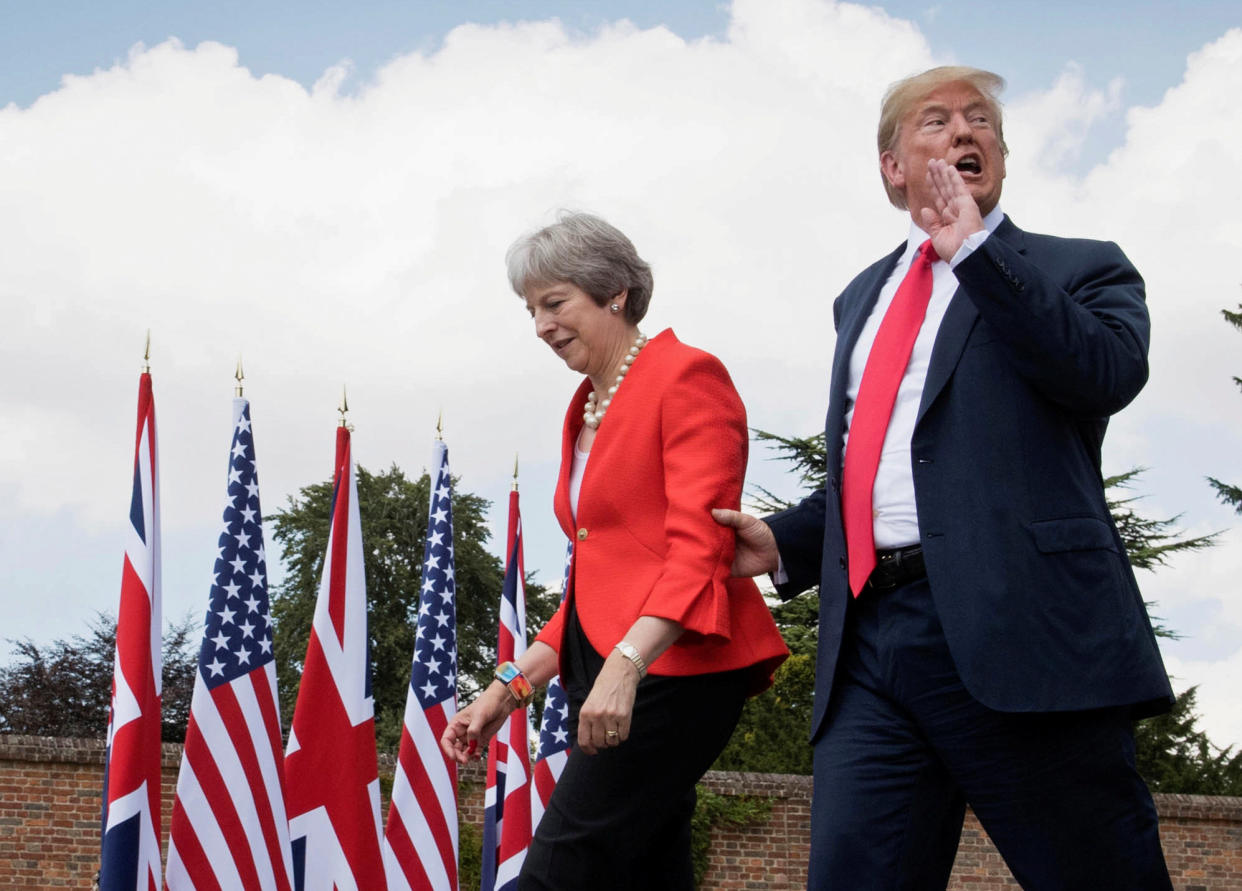A no-deal Brexit won't mean that a UK-US trade pact is going to happen anytime soon

With only eight months to go until Britain leaves the European Union, Britain’s foreign minister Jeremy Hunt added fuel to the fire by saying that the risk of a no-deal Brexit has been increasing.
Staunch Brexiteers have tried to “sell” a hard Brexit by highlighting that it will allow Britain to seal its own global trade deals with the likes of the US, China, and Japan without any intervention from other countries, such as those in the EU. That’s because if it was part of the bloc, it would be prevented in seeking side deals to the ones that all member states would have to collectively decide upon. Prime minister Theresa May also added a news conference in July that “there will be no limit to the possibility of us doing trade deals around the rest of the world once we leave the EU.”
But while US president Donald Trump has somewhat given credence to the claim by saying last month that the nation and the UK could negotiate a “tremendous” trade agreement post-Brexit, it’s unlikely to happen anytime soon. It almost certainly wouldn’t happen by the time Britain exits its transition period that is aimed at helping the UK implement new rules and processes in a post-Brexit landscape.
First up, it should go without saying that carving a trade deal is a complex operation. Taking one of the most recent, successful trade deals into account, the EU-Canada free trade deal (CETA) took seven years to put together. In January last year, Jason Langrish, the man who helped “give birth” to that deal warned that “there is no mutually beneficial deal available between the UK and the EU” that can be discussed within the two-year negotiation period, which ends on 29 March next year, and that forging any trade deals will be harder than the UK is making out.
“The next generation of bilateral agreements, of which CETA is the template, is complex,” said Langrish. “They reflect the realities of modern commerce and go beyond trade, touching upon behind-the-border issues such as standards, regulation and opening government contracts to competitive bidding. This complexity means that the deals take years to negotiate and conclude. In our amped up media environment, there are special interests making noise at each step in the process, ensuring that trade and investment deals are a marathon, not a sprint.”
The complexity is even more acute when it comes to trying to pair up interests from the US and UK, especially on major issues like Britain’s National Health Service (NHS). The NHS is a public institution, funded by the taxpayer, allowing anyone on British soil to obtain free healthcare. A trade deal with the US, which has practically the polar opposite approach to healthcare, also risks breaking up the NHS— something that would mark a seismic change to Brits’ way of life and would be deeply unpopular for any party to propose or support.
Secondly, the US’s enthusiasm for putting Britain at the “front of the queue” may change after it sees how Brexit pans out for the nation. Some estimates say that a hard/no-deal Brexit would cost public finances £80 billion while some say it will lead to a £100 billion blow to the UK economy. Marjorie Chorlins, the US Chamber of Commerce’s head of European affairs, said in a statement that the country’s investment in Britain was made “so companies could seamlessly access the much larger EU single market” and warned that it’s “very hard to know” what future relations, let alone what a trade deal would look like.
Thirdly, as The Economist pointed out, “Congress struggles to pass trade deals. With a tariff-loving populist in the White House, these are not the best of times. Realistically, says an insider, any window for trade deals will close months before the presidential election in 2020.” And that is the date that the UK would have officially completed its transition period of severing ties with the EU and will be start sealing deals.


